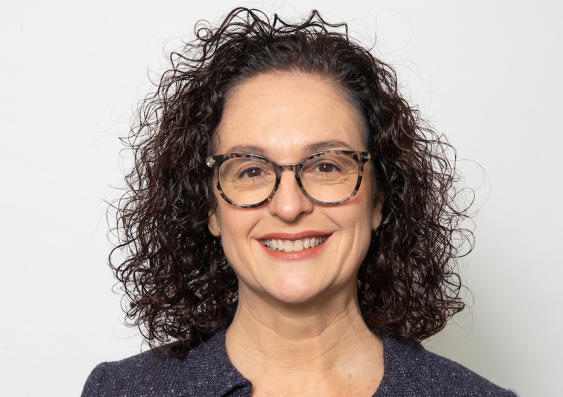UNSW professor awarded $3m grant to improve health care for mentally ill
An NHMRC research grant awarded to UNSW Conjoint Professor Jackie Curtis aims to revolutionise high quality physical health care for people with severe mental illness.
An NHMRC research grant awarded to UNSW Conjoint Professor Jackie Curtis aims to revolutionise high quality physical health care for people with severe mental illness.

Mindgardens Neuroscience Network Executive Director and UNSW Sydney Professor Jackie Curtis will lead a world-first research program to develop personalised physical health care for people living with severe mental illness, following the award of a $3 million grant from the National Health and Medical Research Council (NHMRC).
The five-year trial will create an Integrated Peer-supported Physical Health Service (IPPHS) which will produce sustained improvements in cardiovascular and metabolic diseases including diabetes. These conditions, which often occur as side-effects of mental health medications, are largely responsible for the poorer physical health and reduced life-expectancy, by up to 15 years of people who live with complex mental health disorders such as schizophrenia.
Assistant Minister for Mental Health and Suicide Prevention, the Hon Emma McBride MP said the funding will focus on co-design and peer-support models to help people living with mental illness access effective health care services to improve their physical health.
“People living with mental illness, particularly severe mental illness like schizophrenia, are more likely to live with poor physical health,” Ms McBride said.
The trial, which will take place in urban, regional and rural mental health clinics in southeastern Sydney and Tasmania, will employ peer workers – people with their own experience of mental health challenges – to help participants navigate through the care system and find the most suitable health supports.
General practitioners and nurse practitioners will also work directly with the specialist mental health clinics, screening patients for health problems and prescribing medications such as cholesterol-lowering therapies. Patients will also work with clinicians and researchers to develop a mobile phone app to monitor their physical and mental health.
“This trial presents a unique opportunity to deeply integrate physical health supports into mental health services,” Prof. Curtis said.
“We know people who experience severe mental illness miss out on basic physical health care because of barriers like having to make separate appointments and the cost of GP co-payments. This is a huge injustice, and the trial gives us the opportunity to learn what we can achieve when we eliminate those barriers. At Mindgardens, consumers and their loved ones are equal partners in our research and innovation agenda. We are grateful to the NHMRC for backing this essential development work that I believe could provide the rationale for a national program.”
Mindgardens’ Director of Lived Experience and Associate Investigator on the project Catherine O’Donnell said the inclusion of mental health consumers at all stages of the study design, implementation and analysis meant the project would remain grounded in people’s real concerns.
“Peer workers and other consumers have unique insights to share about how we really experience their healthcare,” she said. “By co-designing the clinic services and the mobile app with this understanding at the centre, we can be sure the outcomes will be valuable and relevant to the people who will use them.”
In Australia, four out of every five people living with mental illness have a co-existing physical illness. Compared to the general population, people living with mental illness are two times more likely to have cardiovascular disease, respiratory disease, metabolic syndrome, diabetes, and osteoporosis.
They’re also 65 per cent more likely to smoke, six times more likely to have dental problems, and comprise around one third of all avoidable deaths.
The Chief Investigators on the grant are Prof. Jackie Curtis, Prof. David Castle, A/Prof Simon Rosenbaum, Prof. Philip Ward, A/Prof. Grant Sara, A/Prof. Natalie Taylor, Prof. Mark Harris, Dr Scott Teasdale, Dr Peri O’Shea, and Prof. Kim Delbaere.
Mindgardens, the first initiative of its kind in Australia, is a collaboration between UNSW Sydney, Neuroscience Research Australia (NeuRA), the Black Dog Institute and South Eastern Sydney Local Health District. It offers clinical services to patients, supported by research programs, and training and educational initiatives, drawing on the expertise of the four partners.
“UNSW Sydney is a proud member of the Mindgardens Neuroscience Network, which integrates treatments and research for mental health, neurological, alcohol and drug disorders,” said Professor Adrienne Torda, Dean of UNSW Medicine & Health. “The Centre will lead an innovative research program to improve the physical health care of people living with complex mental health disorders.”
Read more: Mindgardens to revolutionise mental health support
The IPPHS project builds on the Keeping the Body in Mind(gardens) service development research program from Prof. Curtis’s team. This incorporates the Keeping the Body in Mind Program, delivered in collaboration with the South Eastern Sydney Local Health District, and extension projects including KBIM Vaccines, KBIM Refugees, Keep Quitting in Mind and KBIM Primary Care.
Prof. Curtis called for the mental health sector to embrace the goal of making high quality physical health care accessible to all clients.
“This is an essential human rights question,” she said. “It is up to all of us to improve our performance in making physical health services available for people who live with severe mental illness, who are some of the most vulnerable in our community, so everyone has an equal chance to live a long and healthy life.”
NHMRC’s Targeted Calls for Research grant scheme is designed to stimulate research or build research capacity to address a specific health issue where there is a significant knowledge gap. The outcomes of the research will inform the development of policies, health services and models of care that support people with coexisting mental and physical health conditions.
Read more about the Mindgardens Neuroscience Network.